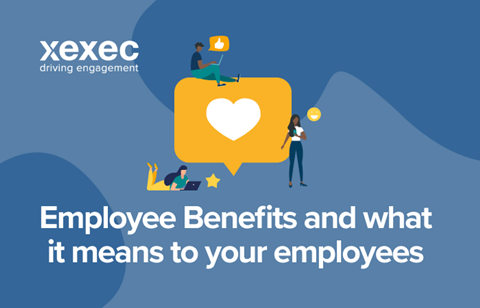
Employee benefits have become more important than ever before, gone are the days where they are considered a 'nice to have'. In the war for talent that threatens organisational productivity, as well as employees wanting a lot from their jobs on top of just their monthly salaries, more and more organisations have invested time, resources and budget into introducing an employee benefits package in some way or another.
What are employee benefits?There are so many different meanings of what an employee benefit is, and the variations are often linked to what a company offers. But in simple terms: employee benefits are additional non-wage incentives and compensation provided by employers on top of an employee’s normal salary or wage package. Employee benefits are designed to help attract, retain and engage the top calibre staff for a company and a way to ensure they are motivated and looked after. Employee benefits fall under an employee’s full compensation package and this needs to be looked at holistically.
Different types of employee BenefitsLike with everything, there shouldn't be a one size fits all strategy when it comes to employee benefits, they should be tailored to a company. There are many different types of employee benefits which an employer can offer to its employees. An employee benefits package includes savings and perks on everyday spending, such as discounts at high street retailers, supermarkets, cinemas, travel packages, finance and insurance payments and more.
Typically, employers offer their employee benefits which include holidays and time off, above and beyond the statutory requirements, healthcare, enhanced maternity pay and pensions.
In addition, there are other voluntary benefits which employers can offer their employees, for example cycle to work schemes, childcare vouchers, car leasing, home technology savings, health screenings, employee assistance programs and more. These employee benefits are also known as salary sacrifice schemes which offer both employees and employers both convenience and discounted pricing. They allow employees to pay for a range of products and services via automatic, monthly deductions from their payroll, allowing them to enjoy the benefits of a more manageable cash flow together with additional tax and national insurance savings.
So, what's the purpose of offering Employee benefits?Employee benefits are beneficial and can add a lot of value to both employees and employers alike:
For Employees- Help employees save money on everyday expenses- Add value to employee’s disposable income- Help engage employees and motivate them whilst at work- Improve employee wellbeing with desired offers such as discounted gym memberships- Help employees enjoy a work-life balance- Improve productivity levels- Create a coherent and passionate working environment because employees feel looked after
For Employers- Reduce employee absenteeism- Reduce employee turnover- Recruit top calibre employees and help retain employees- Boost morale and create a desired corporate culture- Have an engaged and motivated workforce who want to go above and beyond their call of duty
Four types of employee benefits1. Mandatory Employee BenefitsLet's start with the more traditional employee benefits which employers are obligated to give to all their full-time employees, whether they've been working a day or a year. These benefits include a Pension scheme where the company contributes, Statutory Maternity Pay, Sick Pay as well as an Annual Leave allowance. 2. Economic Employee BenefitsEconomic employee benefits are classified as savings or a package which will ultimately save employee money as well as allow them to have a greater disposable income at the end of the month. There are many formats in which these benefits can be offered: an employee discount platform where all savings are categorized and housed together is the most effective and efficient.
3. Social Employee BenefitsThere are so many social benefits which will engage your team, so why not align your company with a charity and set up charity days where your employees can get their hands stuck into and volunteer? Or create a social fun committee and give them a dedicated budget for team events and activities.
4. Flexi-time Employee BenefitsEmployees really value the idea of flexible working and flexi-time. It doesn't always have to be strict 9am-6pm. Offer a flexible working schedule for your employees as an employee benefit and watch productivity levels soar.
What benefits are you offering your employees? These employee benefits are flexible and can be offered as a mix and match solution to best suit the organisational needs and values. Remember, the investment will be worth it when you have a workforce that loves coming to work, are engaged and most importantly have a healthy work-life balance.
If you'd like to find out more about how Xexec can help tailor employee benefits for your team, download our employee benefits e-Book.











